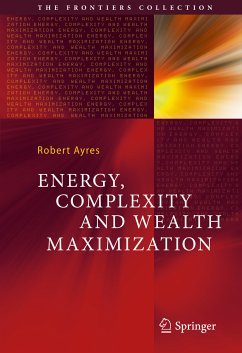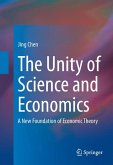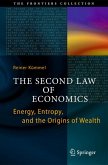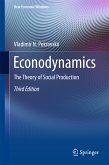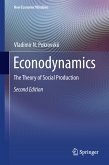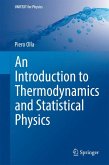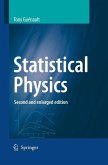This book is about the mechanisms of wealth creation, or what we like to think of as evolutionary "progress." The massive circular flow of goods and services between producers and consumers is not a perpetual motion machine; it has been dependent for the past 150 years on energy inputs from a finite storage of fossil fuels. In this book, you will learn about the three key requirements for wealth creation, and how this process acts according to physical laws, and usually after some part of the natural wealth of the planet has been exploited in an episode of "creative destruction." Knowledge and natural capital, particularly energy, will interact to power the human wealth engine in the future as it has in the past. Will it sputter or continue along the path of evolutionary progress that we have come to expect? Can the new immaterial wealth of information and ideas, which makes up the so-called knowledge economy, replace depleted natural wealth? These questions have no simple answers, butthis masterful book will help you to understand the grand challenge of our time.
Praise for Energy, Complexity and Wealth Maximization:
"... people who run the modern world (politicians, economists and lawyers) have a very poor grasp of how it really works because they do not understand the fundamentals of energy, exergy and entropy ... those decision-makers would greatly benefit from reading this book ..." - Vaclav Smil, Distinguished Professor Emeritus, University of Manitoba
"... A grandiose design; impressive, worth reading and reflecting!" - Prof. Dr. Ernst Ulrich von Weizäcker, Founder of Wuppertal Institute; Co-President of the Club of Rome, Former Member of the German Bundestag, co-chair of the UN's Resource Panel
"... The book is a must read for concerned citizens and decision makers across the globe." - RK Pachauri, Founder and Executive Vice Chairman, The Energy and Resources Institute (TERI) and ex-chair, International Panel on Climate Change (IPCC)
Dieser Download kann aus rechtlichen Gründen nur mit Rechnungsadresse in A, B, BG, CY, CZ, D, DK, EW, E, FIN, F, GR, HR, H, IRL, I, LT, L, LR, M, NL, PL, P, R, S, SLO, SK ausgeliefert werden.
"Ayres does a great job in 'explaining energy or entropy to otherwise educated people' ... which was the starting point of this book. He not only illustrates the physical basics of thermodynamics in a very comprehensible way for non-physicists, but also points out the importance of energy for the evolution of mankind. Therefore, (energy) economists as well as people interested in the interdependency between physics, technology and economics will certainly enjoy reading this book." (Daniel Nachtigall, Journal of Economics, Vol. 121, 2017)
Es gelten unsere Allgemeinen Geschäftsbedingungen: www.buecher.de/agb
Impressum
www.buecher.de ist ein Internetauftritt der buecher.de internetstores GmbH
Geschäftsführung: Monica Sawhney | Roland Kölbl | Günter Hilger
Sitz der Gesellschaft: Batheyer Straße 115 - 117, 58099 Hagen
Postanschrift: Bürgermeister-Wegele-Str. 12, 86167 Augsburg
Amtsgericht Hagen HRB 13257
Steuernummer: 321/5800/1497
USt-IdNr: DE450055826
Bitte wählen Sie Ihr Anliegen aus.
Rechnungen
Retourenschein anfordern
Bestellstatus
Storno

